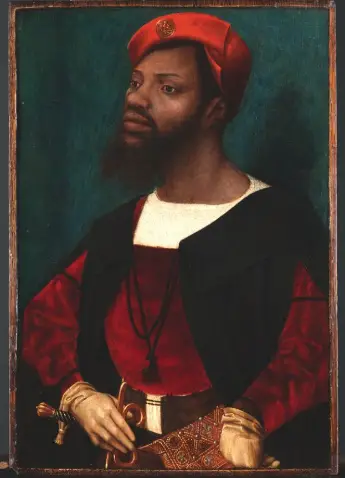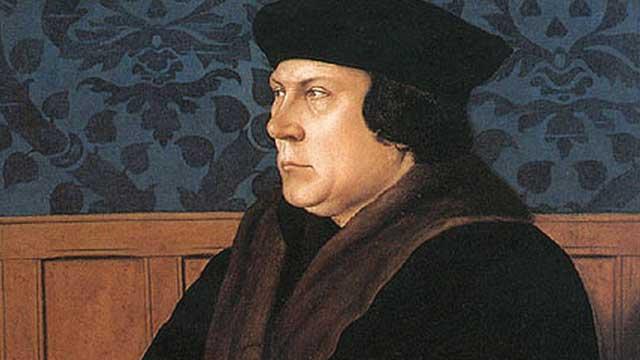Edmund Tudor was the son of Owen Tudor and Catherine Valois (Catherine of France), widow of Henry V and mother of Henry VI. Margaret Beaufort was the daughter of John Beaufort, 1st Duke of Somerset, who was descended from John of Gaunt, Duke of Lancaster and third son of King Edward III, and his mistress, and eventual wife, Katherine Swynford. Neither of Henry's parents had a strong claim to the throne, with Edmund having no English royal blood and Margaret being descended from a line which was deliberately excluded from the succession, but Henry became the senior Lancastrian claimant to the throne following the deaths of Henry VI and his son, Edward, Prince of Wales, in 1471.
In 1483, Edward IV died unexpectedly. His brother, Richard, Duke of Gloucester, was appointed Lord Protector to act as regent for Edward's son, Edward V, who was just a child. To cut another long story short, Edward IV’s marriage to Elizabeth Woodville was deemed to be invalid, thus making the claims of their sons, Edward and Richard, to the throne invalid, and Richard seized the throne becoming Richard III. The boys, who were lodged in the Tower of London, disappeared and it is not known what exactly happened to them.
Henry Stafford, 2nd Duke of Buckingham, rose up against Richard III in 1483, planning to replace him with Henry Tudor, but the revolt was unsuccessful and Buckingham was executed as a traitor. In 1485, Henry Tudor and his uncle, Jasper Tudor, rebelled against Richard. On Christmas Day 1483, in Rennes Cathedral, France, Henry pledged to marry Elizabeth of York, daughter of Edward IV and the sister of the Princes in the Tower (Edward V and his brother Richard), thus gaining more support for his claim to the English throne. Henry also had the support of the Welsh, being descended through his father, Edmund Tudor, from Rhys ap Gruffydd, The Lord Rhys.
On 1st August 1485 Henry Tudor sailed from Harfleur in France to Milford Haven in Wales with a force of French mercenaries and English exiles. He landed on the Welsh coast on the 8th August and set about gathering further support and troops as he marched through Wales and the Welsh Marches, aiming for London. Henry also asked for support from his stepfather, Thomas Stanley, 1st Earl of Derby, who, although married to Henry’s mother, Margaret Beaufort, was a Yorkist supporter. Henry knew that his stepfather had money and influence and could rally his own private army. Stanley, and his brother William, did bring troops down from the North West of England, but we don’t know whether they committed to supporting Henry prior to the battle, they may well have wanted to keep their options open, and we know that Richard, on hearing of Henry's arrival, took Stanley's son, Lord Strange, hostage to guarantee his support.
Richard III gathered his troops and marched from Leicester, aiming to cut off Henry who was marching from Wales to London. The two forces met in Leicestershire in a field near Stoke Golding, Sutton Cheney and Market Bosworth. The Bosworth Battlefield website tells of how the King's army was on higher ground, with Henry's forces “strung out in a line below” and that the Stanleys' forces stayed out of the battle at first, while they decided on which side to support. The website tells the story:
“Richard ordered his friend, the Duke of Norfolk, to attack Henry's men, who were strung out in a long line after negotiating the marsh. Henry had never fought in battle before, but had the Earl of Oxford with him, an experienced soldier. Oxford placed two banners in the ground, and encouraged Henry’s men to form up between them. This created a solid wedge of men and when Norfolk charged, he found Oxfords Wedge difficult to attack. During the fierce fighting Norfolk was killed, however, the advantage of numbers was still with Richard and the Yorkists.
Henry decided to ride out with a small bodyguard to appeal to Lord Thomas, who was still uncommitted. Richard, from his higher vantage point, intended to stop Henry from reaching his step father. As the King and his Cavalry charged towards Henry, the force was so great that one of his Knight’s lances pierced through Henry’s standard bearer, and snapped in half.
At this point William Stanley finally committed to support Henry and his men attacked Richard and his Cavalry. Richard suddenly found himself outnumbered, and was cut down and killed."
Richard was buried at Grey Friars monastery in Leicester.
On the 27th August 1485, Henry entered London as King Henry VII and he was crowned on the 30th October. On the 10th December, Parliament petitioned him to marry Elizabeth of York, the Speaker declaring "Which marriage, they hoped God would bless with a progeny of the race of kings, to the great satisfaction of the whole realm". Henry agreed and the marriage took place five weeks later. It had been planned for some time and their betrothal, which had been cooked up by Elizabeth Woodville, Elizabeth of York's mother and Edward IV's widow (and mother of the missing princes in the Tower) and Margaret Beaufort, saw the union of the Houses of York and Lancaster.
The marriage between Henry and Elizabeth was happy and successful. The couple had four children who survived childhood: Arthur, Henry (Henry VIII), Margaret and Mary. Elizabeth died on 11 February 1503 and Henry was said to be devastated by her death.
Henry VII ruled for over 23 years and died on 21 April 1509, aged fifty-two. His achievements include:
- Securing the throne and passing his crown unchallenged on to his son and heir, Henry VIII.
- Uniting the kingdom and bringing peace to England after decades of unrest.
- His reform of administration – e.g. The setting up of the Court of the Star Chamber.
- Restoring the Crown's fortunes.
Further reading on Henry VII and the Battle of Bosworth
- Battle Story: Bosworth 1485, Mike Ingram
- Bosworth 1485: Psychology of a Battle, Michael Jones
- Winter King: The Dawn of Tudor England, Thomas Penn
- The Journey to Bosworth, Bosworth Battlefield Heritage Centre and Country Park.
You may also be interested in our primary sources pages:




Hello,
I go to Sixth form and my avid interest in both the Plantagenets and history has caused me to do my disseration on Richard and the Plantagenet downfall and subsequent Tudor rule.
As I am doing my Extended Project Qualification on Richard III, with the question of choice, “To what extent did Richard III cause the downfall of the Plantagenet dynasty?”, and was hoping to ask what you believe on this subject matter. How do you feel about Henry VII’s victory? Why do you believe he won and not Richard? Is the modern view of Richard III down to Tudor propganda, woven into our society? I would like your opinion on this.
Many thanks,
Niamh Whiston.
Hi Niamh,
That’s great that you’re doing your dissertation on such a fascinating project. It would take me an essay to answer your questions so I’ll just share a few points. If you’re a member, you can also browse the site for resources – our July talk is on the survival of the princes and recently we’ve had talks on Henry VII and Bosworth. Re Bosworth:
Just a few things to consider.
I don’t think the Tudor propaganda has much bearing on our views of him today as I think the discovery of his remains and all the documentaries in recent years have educated people. Just my opinion. Sorry I can’t write more.
Members might be interested to see my treatment of Henry Vii in my five act play in pseudo Shakespearean verse. Search for Henry VII Play online or go to my website
shakespeareshenryvii.co.uk
It starts the day after Bosworth and finishes just after his death. It features all the characters you would expect, including Margaret Beaufort, Elizabeth of York, Katherine of Aragon and many others. I’d be glad to have any comments.
I have added a whole lot of notes!
David Collard
My play Henry VII: A Play After William Shakespeare by David Collard has now been published by Saron Publishers 2020 and is available from Amazon at £4.99 or from booksellers.